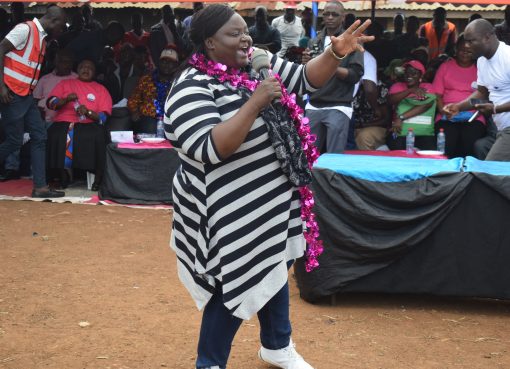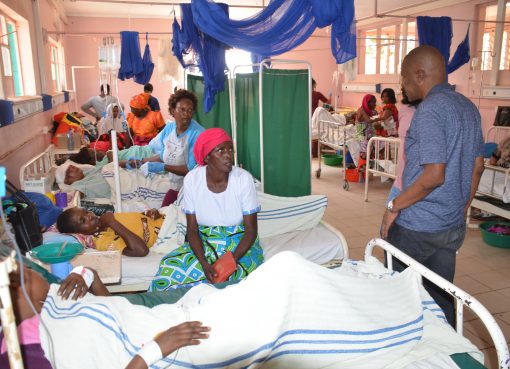The National Syndemic Diseases Control Council (NSDCC) has called for concerted efforts to tame increased HIV infections, especially among young people, with officials saying the new infections could increase the HIV burden in the country.
NSDCC Chairman Geoffrey Gitu, speaking at Kanyenyaini during a public engagement forum, called upon the community to come together to guide and protect young people from new HIV infections, early pregnancies, and gender-based violence (GBV).
“We have to come together to protect all children from this Triple Threat they are facing,” he said, adding that residents should take it upon themselves to correct any young person in the wrong and also inform their parents.
Gitu said a multi-sectoral approach will be employed to ensure locals get the right information and embrace the measures put in place to end new infections, teen pregnancies, and gender-based violence.
The chairman emphasised the urgency of addressing the triple threat, noting its detrimental impact on efforts to end the HIV pandemic in Kenya.
He said the NSDCC identified sexually gender-based violence and teenage pregnancy as indicators of heightened risk of HIV infections.
NSDCC Head of County Support, Carol Kinoti, called upon parents to teach their children about safe sex and preventing teenage pregnancies.
Kinoti noted that open discussions on sexuality would help bring down the number of new infections among young people and prevent teenage pregnancies.
She also called upon parents and guardians to ensure teenage mothers went back to school to acquire an education after giving birth.
“Taking teenage mothers back to school is also a way of ensuring they get their lives back on track and they do not get more pregnancies,” she said, adding that continuing with education also ensures they do not end up in early marriages.
Mwangangi Mwania, who was representing the Ministry of Interior and National Administration, cautioned the teenagers against early sex, saying it exposes them to early pregnancies and HIV as well as GBV.
He further asked parents to closely monitor what content children are exposed to because it influences their behaviour.
“Children have to be closely monitored because they could be exposed to many different things on the internet, and parents must guide them so that the children do not get confused,” Mwania said.
He further asked the community to ensure that people arrested for GBV-related cases are prosecuted according to the law and cautioned them against protecting perpetrators at the expense of the victims.
“The Ministry has helped save many girls from early marriages and ensured the prosecution of numerous culprits of GBV and those responsible for teen pregnancies,” he said.
Kangema DCC, Esther Mwamure, also echoed the sentiments of the other speakers and said that cases relating to GBV should be dealt with appropriately and according to the law.
Mwamure called for open dialogue around the triple threat and asked residents to get tested and adhere to treatment so as to reduce new infections.
“Young people in the county should go for HIV testing and counselling as a way to help end new infections,” the DCC said.
She also called for those involved in the fight against alcohol and drug abuse to remain vigilant, as abuse of drugs and substances also contributes to new HIV infections, teenage pregnancies, and GBV.
To end the triple threat, the council is working with respective partners like local administrators and health workers to disseminate information at the community level on preventive measures and support those in need of services.
By Purity Mugo and Anita Omwenga





